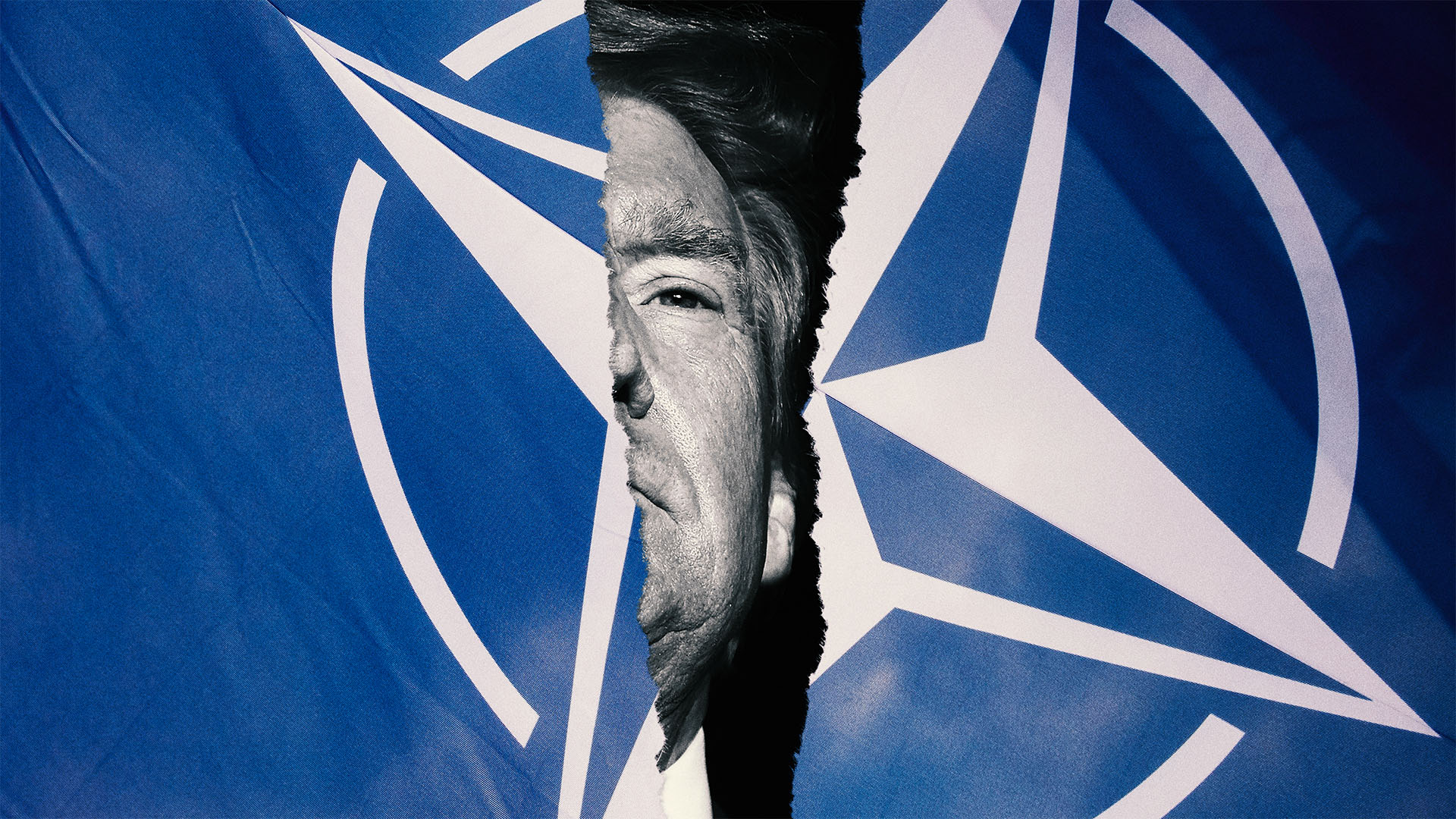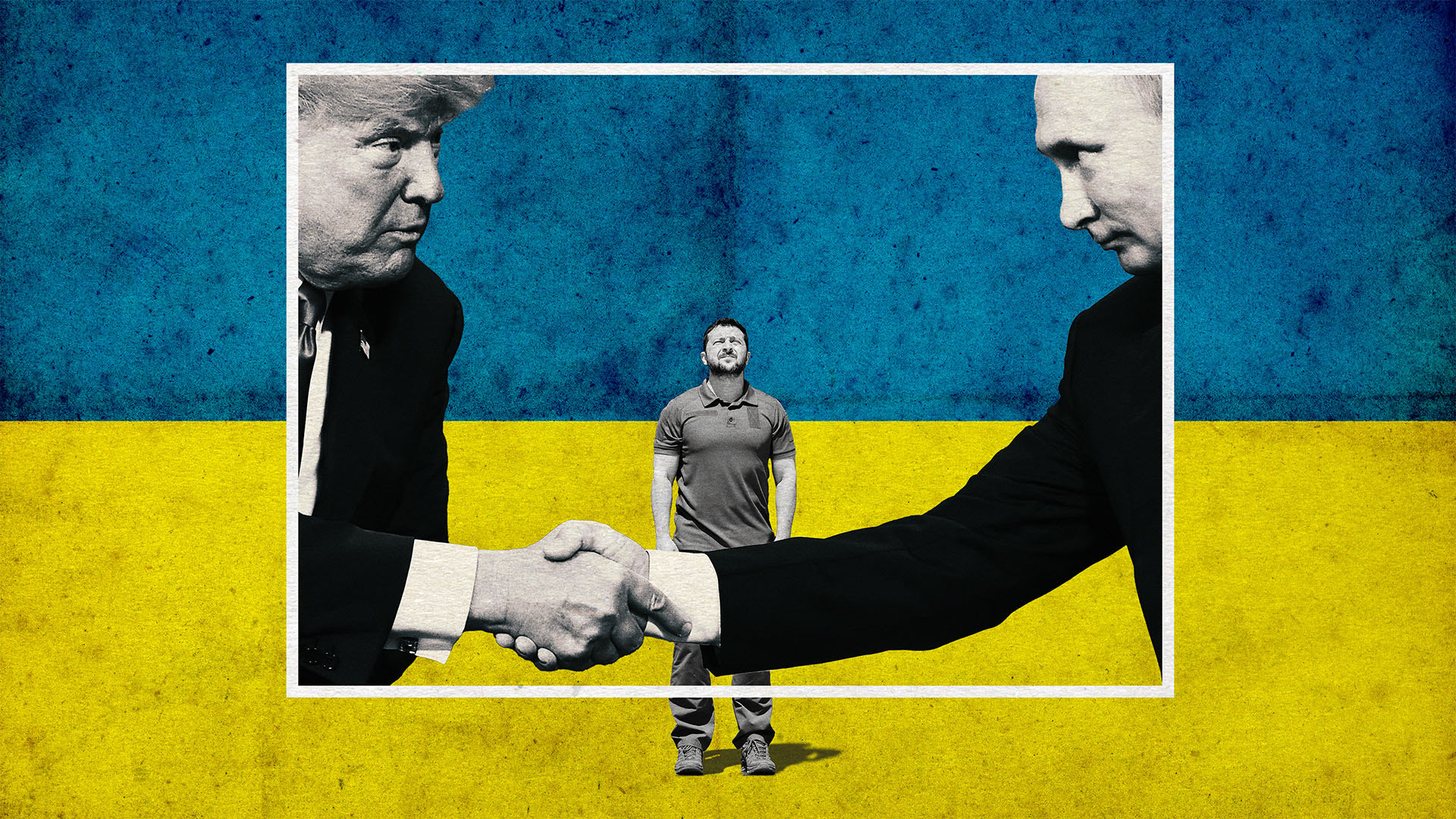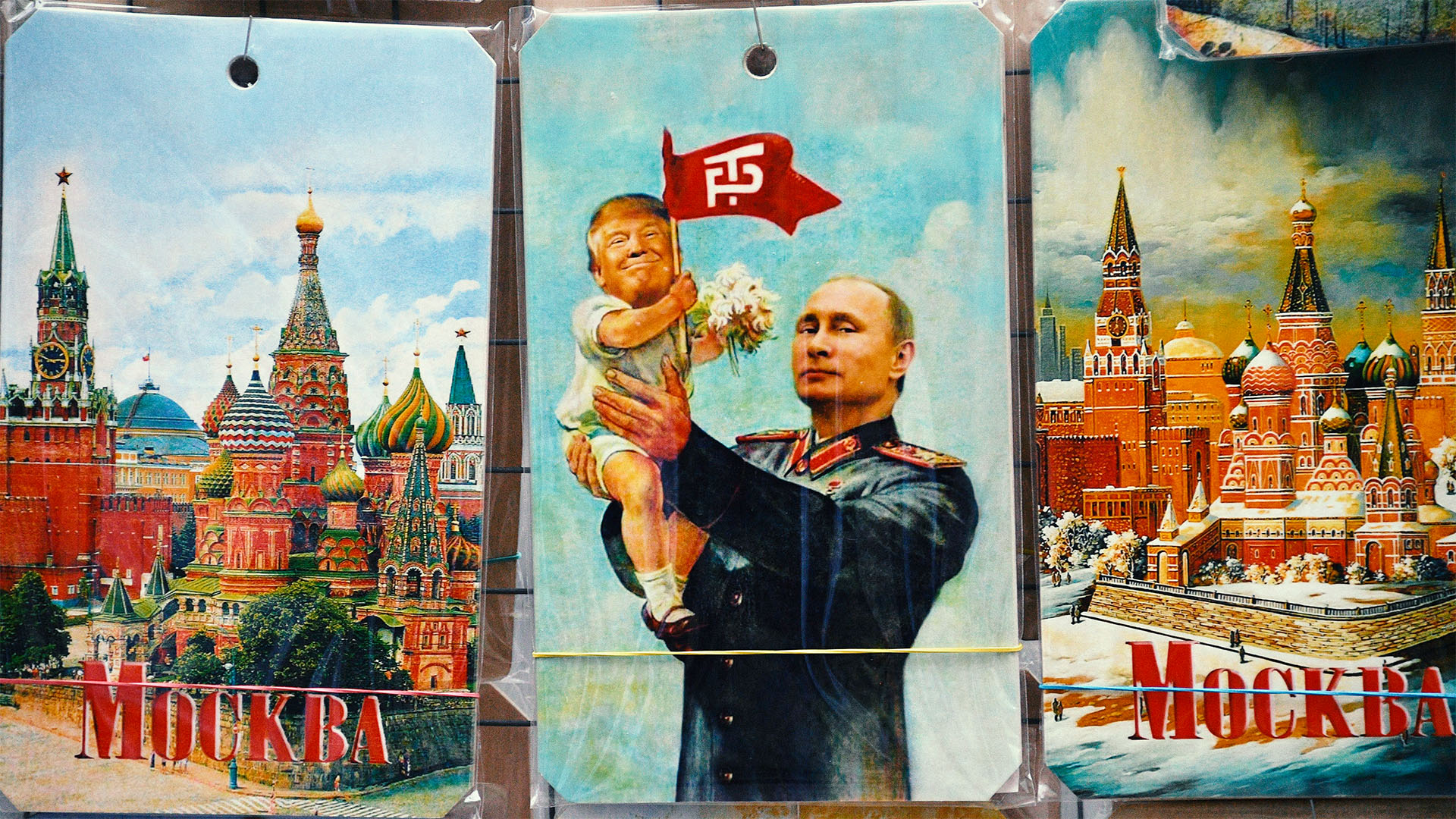In testing times, go back to the foundational texts. In this case, as the western alliance collapses, our best guide is to be found in season four, episode five of Succession, as Waystar Royco’s general counsel, Gerri Kellman (J Smith-Cameron), peps up the plane journey to Norway by telling the Roy family not to fear the corporation’s prospective buyers.
“They’re European,” she says with a sneer. “They’re soft; hammocked in their social security safety net, sick on vacation mania and free healthcare. They may think they’re Vikings, but we’ve been raised by wolves”.
In essence, this is precisely how Donald Trump sees what used to be called the “Old World”, and it is the sentiment that underpins the extraordinary damage he and his acolytes have done in the past fortnight to the transatlantic partnership.
Since December 8, 1941, when Franklin D Roosevelt committed his nation’s forces to the second world war, a bond has been in place between the US and Europe. Whatever morsels of comfort and warm words Emmanuel Macron and Keir Starmer salvage from their respective visits to Washington DC this week, that solemn understanding has been shattered.
Such security relationships depend entirely upon a strong measure of predictability and continuity. And so, by definition, though platitudes will be uttered to the contrary, this is an ex-alliance; it has ceased to be.
I am a European by birth and an Atlanticist by temperament. For as long as I can remember, I have felt what the late Christopher Hitchens called “the strong gravitational pull of the great American planet”, which he identified “with breadth of mind, with liberty, with opportunity”.
The post-war conduct of the US has scarcely been blameless. But the glee with which some Europeans focused on the debit side often seemed to me both intemperate and self-destructive.
Not everyone might share Lincoln’s conviction that America was the “last best hope of earth”. But there has always been a profound hypocrisy in sleeping under the blanket of a peace paid for in US blood and treasure, outsourcing our security, while reserving the right to patronise America for its alleged vulgarity and imperialism.
This was always tempting fate – and now fate is doing its work. On election night in Germany, Friedrich Merz, whose CDU-CSU won the most votes, was only acknowledging the upheavals ahead when he said that we must ask “whether we will still be able to speak about NATO in its current form”.
To recap: on February 12, Pete Hegseth, the US defense secretary, warned the Ukraine Defence Contact Group in Brussels that the US would no longer be “primarily focused on the security of Europe” (a version of the speech pre-briefed to the press was even more candid, insisting that America would stop being “the primary guarantor of security in Europe.”).
On the same day, the president posted on Truth Social initial details of a “lengthy and highly productive” phone call with Vladimir Putin about ending the war in Ukraine. Not only was Volodymyr Zelensky excluded from the first round of high-level talks between the US and Russia in Riyadh; Trump went on to call him “A Dictator without Elections” and, insanely, to accuse him of starting the war.
Yet the most revealing intervention of all was made by JD Vance at the Munich Security Conference on February 14, in which the vice-president told his audience that the greatest menace to Europe was “the threat from within” – the alleged retreat from free speech, religious liberty and strong borders.
As the Atlantic writer Adam Serwer has written of Trump’s methods, the cruelty is the point. In this instance, the contempt is the point, too. The president is routinely described as “transactional”, and correctly so. But Vance’s message was that America’s disengagement from Europe is not only a matter of realpolitik.
It also reflects scorn for a continent that, through the MAGA prism, represents all that is soft, needy and pathetic: weak in nationalism, weak on migration, weak in its wokeness, weak in its snowflake censorship of Big Tech, weak in its fixation with Net Zero, weak in its betrayal of Christianity. Remember the “reds under the bed”? That’s us now.
Do all Americans see us like this? Of course not. But a great many do.
One of the most tragic refrains since Trump took office – on both sides of the Atlantic – has been: “The people didn’t vote for this”. Oh yes, they did.
Since he descended the golden escalator in 2015, Trump has been absolutely clear about his “America First” priorities, his belief that NATO fleeces the US taxpayer, and – leaving aside its pageantry, golf courses and this country’s monarchy – his generally dismissive view of Europe as a continent that embodies one of the words he most often uses: sad.
To be honest, it is remarkable that the transatlantic alliance generally, and the special relationship between the US and UK specifically, endured as long as it did. This was partly a matter of personal affinities: the chemistry between Churchill and FDR; between Harold Macmillan and John F Kennedy (in which, Macmillan claimed, Britain played Athens to America’s Rome); between Margaret Thatcher and Ronald Reagan; between Tony Blair and both Bill Clinton and George W Bush.
No less striking, however, was the relationship’s capacity to survive setbacks and speed bumps: none greater than Dwight D Eisenhower’s fury with Anthony Eden during the Suez crisis in 1956. Lyndon Johnson was almost as angry with Harold Wilson over the UK’s refusal to give military support to the US in Vietnam.
As Dean Rusk, LBJ’s secretary of state, raged to the Labour prime minister: “All we needed was one regiment. The Black Watch would have done. Just one regiment, but you wouldn’t. Well, don’t expect us to save you again. They can invade Sussex and we wouldn’t do a damn thing about it”.
The rage subsided and the relationship survived. It doubtless made a difference that Eisenhower, Kennedy, Johnson, Nixon, Gerald Ford, Jimmy Carter, Reagan, and George HW Bush had all served in the war or been reservists.
Even after that generation passed, and the cold war ended, there remained a deep, shared understanding that the interests of the democratic world, the rule of law and global prosperity were best served when the alliance prevailed.
I recall a blisteringly hot day in July 2007, on the immaculate lawn of Camp David, as Bush held a press conference with Gordon Brown, newly installed as prime minister. From the media seats, it was clear that the two men had not achieved the easy rapport that had quickly grown between the 43rd president and Blair. But Bush went out of his way to praise Brown and to make clear that the special relationship was about more than personality.
All the same: delusion is the midwife of betrayal. And it was a delusion to believe that America’s commitment was unconditional, and that autoworkers in Michigan and farmers in Iowa would forever subsidise the pensions of Parisians and the unemployment benefits of Londoners by paying the lion’s share of the West’s defence bill.
The resentment was always there. Again, Rusk expressed it best when Charles de Gaulle withdrew France from NATO’s integrated command in 1966 and asked all US troops to leave his country. “Does that include all the dead Americans in military cemeteries as well?” he asked.
During the war on terror, Donald Rumsfeld, Bush’s first defense secretary, took aim at Franco-German hostility to US strategy; drawing a distinction between “Old” and “New” Europe.
As long ago as 2003, then, “Old Europe” was being served notice by America: don’t take us for granted. But that is precisely what Europe did – take for granted what the US scholar, Walter Russell Meade, has called “an eternal snuggle rug of American protection”.
Under Barack Obama, festering irritation acquired a calmly strategic face. Why should the US continue to focus upon Europe when it was pivoting towards the challenges of the Pacific?
In 2011, Robert Gates, defense secretary under both Bush and Obama, was quite explicit about the risks: “The blunt reality is that there will be dwindling appetite and patience in the U.S. Congress – and in the American body politic writ large – to expend increasingly precious funds on behalf of nations that are apparently unwilling to devote the necessary resources or make the necessary changes to be serious and capable partners in their own defence”.
There might come a time, Gates continued, when “US political leaders… [did] not consider the return on America’s investment in NATO worth the cost”. Well, that time came during Trump’s first term, when he actively considered withdrawing the US from the alliance – forcing other member states (quite properly) to increase their spending on defence.
But not by enough. Joe Biden’s administration, with its promise that “America is back”, encouraged European complacency and the foolish conviction that Trump’s hatred of “globalism” was an aberration rather than the ugliest expression of a view that was far from confined to MAGA.
During the disastrous retreat from Kabul in August 2021, Whitehall veterans were struck by how little real-time communication there was between Boris Johnson’s No. 10 and Biden’s team. In the years after 9/11, Jonathan Powell, Blair’s chief of staff (now returned as Starmer’s national security adviser) had a more or less open line on his desk to his opposite number in Washington DC. Four years ago, the signs were clear enough: America was quietly quitting its global supervisory role, shutting down the pax Americana by stages.
Yet only in the past few weeks, as Trump’s second administration has begun its brutal work at warp speed, have European leaders fully grasped the depth of their predicament.
Pay no heed to those politicians and pundits who smugly argue that the present panic is unjustified and that the pendulum will swing back. First of all: there is no pendulum in geo-politics, any more than in the domestic arena.
Second: Trump and his team are bored by the past and untroubled by its wisdom. In an extraordinary exchange on X with the conservative scholar Niall Ferguson, Vance mocked those who appealed to “irrelevant history”. MAGA loves heritage: blood and soil, nationhood and kinship, flags and pageantry. But history? It can go whistle.
The American right has long believed that this moment would come. The ur-text of Trumpism is Patrick Buchanan’s 2002 tract The Death of the West (at his infamous Madison Square Garden rally in October, Trump praised the paleoconservative and former presidential contender – now 86 – as “a hot item, he was on every show”).
In 1964, James Burnham – perhaps the most revered thinker in MAGA circles and widely considered to be the model for O’Brien in Orwell’s Nineteen Eighty-Four – published Suicide of the West: a title borrowed by the conservative writer Jonah Goldberg for his own book on the subject in 2018.
In the end, though, the West was finished off by an act of homicide; the great game concluded with a murder, committed by Mr Orange, with a golf club, in the Oval Office. What remains, as in all murder mysteries, is a series of questions.
According to a Chicago Council on Global Affairs-Levada Center poll conducted in January, a majority of Russians would prefer to live in a great nation that is feared than to have a higher standard of living. Are the nations of Europe also willing to embrace the harsh conditions of a war economy – one in which we accept the sacrifice of some social goods in order to pay for enhanced security and defence?
And if the UK is to be part of the European bloc for such purposes, is that bloc prepared to define itself by more than economic policy, regulation and the “Ode to Joy”? Hard power is costly in every sense; not least what it requires of the collective imagination and will.
In Succession, the Europeans prove stronger and less malleable than Gerri predicts. How we shall fare, now that Trump has so brutally pulled the rug from beneath us, is entirely in our own hands.
Because Europe is more vulnerable today than at any time since the fall of the Berlin Wall; perhaps longer. And it would be idle to pretend that anyone is as safe as they were even a month ago. Because nobody is.




